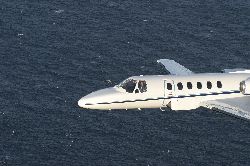 Lieutenant Commander Matt Pickett’s day at the office is anything but ordinary. That could be because his office is an airplane and his day is spent 1,000+ feet plus above the ground. Pickett “flies for science” – or, more specifically, for NOAA’s Remote Sensing Division. He plans and executes atmospheric and oceanographic research, supporting the work of scientists from NOAA and other organizations such as NASA and the Department of Defense.
Lieutenant Commander Matt Pickett’s day at the office is anything but ordinary. That could be because his office is an airplane and his day is spent 1,000+ feet plus above the ground. Pickett “flies for science” – or, more specifically, for NOAA’s Remote Sensing Division. He plans and executes atmospheric and oceanographic research, supporting the work of scientists from NOAA and other organizations such as NASA and the Department of Defense.
Pickett is part of the NOAA Commissioned Officer Corps, which is a uniformed service responsible for operating NOAA’s fleet of ships and aircraft. As chief pilot for the RSD, Pickett’s primary mode of transportation is a Cessna Citation, a twin-engine jet that has been turned into a “flying laboratory” that can accommodate a variety of remote sensing equipment, including digital cameras and Light Detection and Ranging or LIDAR.
"I don’t have a typical day, that’s why I like it!"
“I don’t have a typical day, that’s why I like it!” Picket exclaims. On the road for most of the year, Pickett will visit 4-5 different cities and fly 3-5 times a week. When he’s not flying, Pickett is dealing with project logistics, maintaining the aircraft and science equipment, and keeping up to speed on the latest remote sensing technology.
In addition to freedom from the typical 9-5 desk job, Pickett’s work rewards him with the opportunity to participate in a wide range of interesting projects that can take him to unique places. “The highlight of my career has probably been flying surveys for polar bears on the Arctic ice pack,” Pickett says. “Our job was to fly above the ice while scientists made population estimates.”
However, the job presents challenges as well. Spending 3-4 weeks at a time away from family is one; living out of a suitcase and calling the plane “home” are others that can make the job demanding on a personal level. For these reasons, “the ability to get along well with others for long periods on the road is extremely important,” Pickett says.
Pickett’s advice to students is to study hard and get a degree – or two. Prior to entering the Corps for officer training, Pickett earned a bachelor’s degree in mechanical engineering. Since then he has taken graduate classes towards achieving an MBA. “Don’t worry about whether you want a career in what you are studying because a lot of opportunities will come along that can lead you in completely different directions than you had planned,” Pickett explains. “I could never have predicted that I would become a pilot.”
"Pickett flies for science – or, more specifically, for NOAA’s Remote Sensing Division"
According to Pickett, career opportunities in the NOAA Corps look bright. “We are hiring two training classes per year,” Pickett says. “We’re looking for people who want to go to sea or fly to support NOAA research.” If you’re flexible and have a desire to travel, you may want to consider the NOAA Corps. Who knows? Someday you could be in the cockpit with Pickett mapping California’s Channel Islands or surveying cities like Boston for homeland security. When your office is an airplane, the sky IS the limit.
<< Back to Profiles Start Page
|
|
